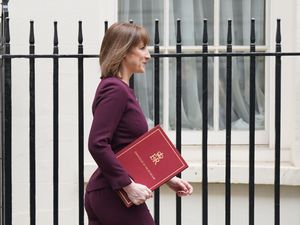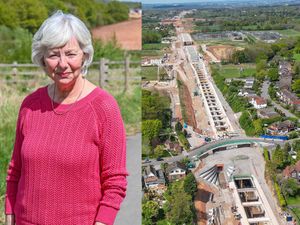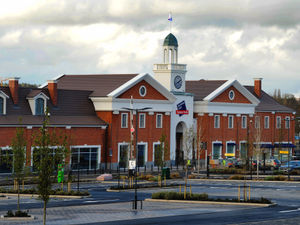Chancellor hitches wagon to defence industry - and the West Midlands is set to benefit
Revitalising the UK's defence sector was weaved through almost every inch Chancellor Rachel Reeves' Spring Statement this afternoon.
Watch more of our videos on ShotsTV.com
and on Freeview 262 or Freely 565
The chancellor said she was backing the UK to become a “defence industrial superpower” - after Prime Minister Kier Starmer had earlier this year outlined the Government’s commitment to increase spending on defence from 2.3% to 2.5% of GDP from April 2027.
The Prime Minister said he would also set an ambition to spend 3% of GDP on defence in the next parliament, as economic and fiscal conditions allow, in order to "keep the British people safe and secure for generations to come".
And the West Midlands could be directly in line to benefit, with a string of high-value contracts already awarded for the region's defence firms. Recent government announcements have seen backing for firms in Telford and Wolverhampton as the administration looks to ramp up its spending with UK based firms.
The mood-music to increased government defence spending is what the government has described as a "changing world" due to ongoing conflicts in Ukraine and the Middle East, with the government now set to plough fresh funding into the country's regional defence manufacturers in a bid to jump-start the country's ailing economy.

Ms Reeves said recently that UK companies and jobs will be prioritised under the Government’s plans for a significant increase in defence spending, with an aim to support “left behind” industrial towns and the economy at large.
“I am determined that as we spend that money on that defence and security, that we use it in a way that can also help stimulate the economy, and particularly to revive some parts of the country that do often feel like they’re left behind,” Rachel Reeves told workers at Telford firm Rheinmetall BAE Systems Land (RBSL) earlier this week.
But while the move is certainly good news for the region's defence industry, critics of the scheme have called it a "roll of the dice" with no clear plan to boost the wider economy.
Earlier this week chancellor Rachel Reeves was in Shropshire on a visit to Rheinmetall BAE Systems Land (RBSL) in Telford, one of the companies that is likely to benefit from a pledge by the UK Government to increase its defence budget.
RBSL produces UK based combat vehicles across its sites in Gateshead, Bristol and Bovington, as well as at Hadley Castle Works in Telford, where there has been an industrial presence since the late 19th century.
The 700 or so staff employed by the firm will certainly benefit from a recently awarded a five-year, £110 million contract to carry out "post design" modifications for in-service heavy armoured vehicles. The agreement covers technical support and safety management for platforms including the Challenger 2 and Challenger 3 main battle tanks, Warrior infantry vehicles, CVR(T) reconnaissance vehicles, and engineering vehicles such as Titan, Trojan, Terrier.
In further good news for the region, the government announced that over 400 jobs had been secured in the West Midlands after a £1.6 billion defence contract was Telford firm Babcock International extended for five years.
The government said the deal directly supported a further 1,200 defence jobs across the country, as well as 6,000 UK businesses in the wider supply chain.
Meanwhile at the end of last year, Wolverhampton based Collins Aerospace was awarded a contract worth around £15 million to equip a fleet of the UK’s Royal Air Force H-47 Chinooks with its Common Avionics Architecture System (CAAS) avionics suite -
But government hopes that the extra spending generated in the regional economy by high-value defence deals remain untested against the backdrop of a fragile economy still rocking from changes to NICs announced last autumn.
Nonetheless, defence secretary John Healey said the uplift in spending would be an "engine for growth".
“Supported by largest sustained increase in defence spending since the Cold War, this substantial investment demonstrates how defence is an engine for growth: supporting businesses of all sizes and sustaining more than 400 good, well-paid jobs in the West Midlands," he said, speaking referring to the Babcock International contract.
"We will back the high-growth, high-tech UK defence firms of the future, to boost our national security and make defence an engine for growth," he said.
"We will make the UK a defence innovation leader, funding and supporting firms of all sizes to take state-of-the-art technology from the drawing board to the production line, and into the hands of our Armed Forces.
"Defence has a crucial role to play in economic growth across the UK - built on the foundation of the largest sustained funding increase since the Cold War - to support thousands of highly skilled jobs."
And while the government will continue to insist that spending in the domestic defence industry will be the "bedrock of a successful economy", and of the government's future plans - only time wil tell if that strategy will be enough to jolt the UK's regional economy from its slumber.





